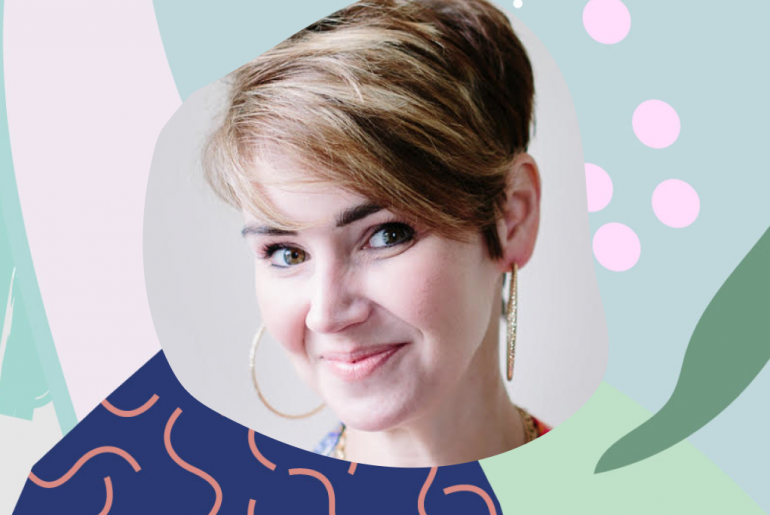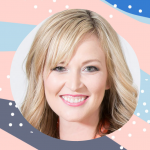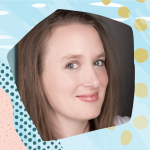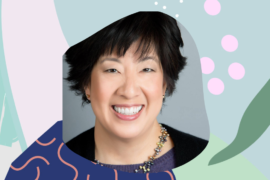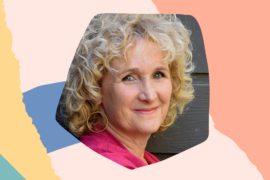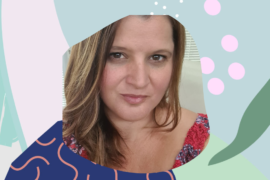Key Takeaways
- How Whitney discovered the membership site model.
- Why working with a highly-specific, targeted niche helped Whitney build a ton of momentum.
- The reason a lack of education or credentials in her field helps bolster Whitney’s credibility for her audience – and why it makes her so much more relatable.
- What Whitney’s beta launch looked like – and the unique strategies she used to build a kind, gracious, and sympathetic audience much larger than she ever expected.
- Why prepping an entire year’s worth of material at once would have left lots of Whitney’s students in the dust – and the benefits of building your membership site piece-by-piece as you go along.
Free Give
FREE Guide – Launch & Grow a Profitable Membership Site
Ready to reclaim your time and attract more monthly paying customers? Our step-by-step guide will show you how to build a membership site that turns your passion into recurring profit. Click here to download!Memorable Quote
- “Travel is taxing, it’s hard, and it’s difficult in particular to be away from your family. It got me interested in communicating with people in a way where I wouldn’t have to add more dates to my calendar, but I could still do what I love.” – Whitney Capps
- “I didn’t know that starting a membership site was accessible for anybody.” – Whitney Capps
Episode Resources
Transcript
Read The Transcript
Shelli: Whitney Capps, welcome to the It’s a TRIBE Thing Podcast. How are you?
Whitney: I am so thrilled to be with you. This is so super fun and those who know anything about the TRIBE Community know, man, what a treat it is anytime we get to hang out together. It’s so rad.
Shelli: Yeah. It is and it really is a TRIBE thing. It’s not just a…
Whitney: Yeah. It is.
Shelli: That’s not just the title. That’s what it is.
Whitney: That’s right. We’re not just saying that. It’s legit.
Shelli: I’m super stoked to have you here because you’re inspiring on many levels which we’ll get into but if you can start by telling people who you serve and what you do and where you were when you started before you’re the cool awesome human you are today.
Whitney: Well, that’s very kind. I don’t know if I’ve reached that cool awesome human status yet but I work in the faith-based space and so I’ve spent about the last 12 years traveling to churches across the United States and I speak to women’s groups and organizations. And so, I started over a decade ago. I had little kids at home. I had four boys. My oldest is now 13 and my youngest is seven but when I started traveling and speaking, I had two littles at home. And so, originally, I would speak about six times a year and for a mom with little kids and then who was eventually pregnant and later pregnant again, six times felt like a big commitment to jump on a plane and travel and be gone from my family. As we have added to our family, our boys have gotten older, my speaking schedule has increased and so that’s been really exciting. I love what I get to do. Teaching the Bible essentially is what I do, and teaching women is without question one of my favorite, favorite things to do. So, I love communicating, I love teaching, and I love giving people light bulb moments.
And so, I get super energized when I can see somebody hear information that maybe they have heard a thousand times before but they kind of get it in a fresh perspective. I joke that I think my gift as a communicator is to take fairly complex ideas and break them down in a way that women in particular who may have been intimidated by that information or studying the Bible kind of have those aha moments where all of a sudden that information feels really accessible. So, that’s what I had been doing for about the last ten years and like I said, my schedule has increased, and I have a little bit more flexibility. My boys are older. They’re a little bit more independent and so I was traveling. And I love that but anybody who travels for work or even if you do it for fun, it’s taxing and it’s hard and it’s difficult, in particular, to be away from your family. And so, it kind of got me interested in the possibility of having that same experience communicating with people in a way that they could still have those lightbulb moments and I could have that kind of fun but maybe not have to travel more or add more dates on my calendar, have the commitment of being away from my kiddos, missing more events or activities but yet still get to do what I love.
And so, that’s really what kind of put me on the path of kind of trying to understand what people were doing and how do you kind of accomplish this thing and what does that look like. But I had zero knowledge. So, I really started from a place of, “Hey, I’ve heard people doing this,” and in my mind, I thought only people who had massive followings and were well-established and kind of the thought leaders in their area of influence, I thought they were the only people who could do this kind of thing. So, when I start to investigate…
Shelli: When you say this kind of thing just for those who are listening, what are you referring?
Whitney: Absolutely. A membership site specifically where you kind of become an entrepreneur and a CEO and you kind of create your own corner of the Internet where you really create community. I didn’t know until I started, and particularly following Stu and TRIBE that this was something that was accessible really for anybody and once kind of I had that light bulb moment, I was like, “Holy cow, there really might be something here,” and that was really right at a year ago.
Shelli: That’s incredible. Well, I love what you said you were talking about how people could have heard something a thousand times and then sometimes just like that lightbulb moment and definitely true in your story, but also for everybody who’s listening, like if you’re interested in the topic, I often hear entrepreneurs or coaches, authors, speakers say, well, as they’re getting started on this journey to a membership site or a course that like, “Who am I to be doing this because there are so many other people doing it?” But to your point, if you’re interested in a topic, you’re probably not going to buy one book on the topic. You’re going to be consuming the content until you get to a person who is just like them, “That’s my person. You know, I received the information from them,” and just in a way where it’s like you’re able to make that connection and just switch them on.
Whitney: Yeah. And I think one of the things that was so maybe empowering for me was embracing the fact that I don’t know that that happens. I am not the most knowledgeable person out there, but I think what you’re describing is when we are engaging with, you could call them a follower or a friend or a fan, just people who will give us a little bit of airtime. There is something to be said just for the chemistry of how you connect with people but like you said, you kind of package it in a way that even if it’s something they’ve heard a thousand times before, maybe even from people who are far more qualified than I am, there’s just a chemistry in kind of how we connect. And when you find those people who connect with your brand of awesome and how you package it, you don’t have to be the smartest gal in the room, the smartest guy, or the most experienced. You just have to find your people. And so, when you do, that creates the excitement to go, “Gosh, if I can just connect with these kinds of people, not everybody, these kinds of people which is one of the things that TRIBE help me really embrace is it doesn’t have to be massive. It has to be actually really, really targeted and really specific, and that creates a ton of momentum. And so, that was really freeing to me.
Shelli: Well, I mean, to your point, I’ve said this before but when you’re talking to everybody, you’re talking to nobody. So, instead of going a mile wide and an inch deep, just trying to please everybody. If instead, people think about going an inch wide and a mile deep in saying, “Okay. This is my flag in the ground. This is who I am. This is who I’m not. This is how I be.” The people who are like you who were the only people going to buy from you anyways, you will be like a lighthouse in the dark for those people.
Whitney: Absolutely.
Shelli: And it would be like a magnet and it also allows like the production of the content to be more fun too because you’re kind of a new zone of genius.
Whitney: That’s right. There’s a lot of freedom in saying, “Look, this is who I am.” And for me, I am not the only person doing this. As a matter fact, another online seminary just launched earlier this week, and a girlfriend texted me and said, “How do you feel about this?” and I said, “I think it’s awesome.” I think that I cheer them on, and I’ll be happy to refer people to them if I’m not a fit. So, when you kind of embraced these are my people and there are going to be enough people for me to service and love well then your kind of freedom, I don’t have to compete, and in fact, if I stay current with the other people who were doing it but doing differently than I am, if somebody comes to me and I’m not a good fit, I can tell, “Well, gosh, if you got a need, why don’t you check out these other people because they do it differently than I do and that might be a really good fit for you.” And I have found people who didn’t stick with me found that that was such a high compliment that they’re like, “That’s really amazing that you would send me other resources that are not you.” And so, I’m like, “I want you to find what’s going to work for you and I’m okay that that’s not me, but it exists out there.” So, there’s just a lot of freedom in that.
Shelli: Yeah. And the truth is there’s enough for everybody.
Whitney: Absolutely.
Shelli: So, when you’re at the point where you’re away from your kiddos and you’re speaking six times a year and feasibly that is a lot when you’ve got little ones at home. So, what was the point when you look to a membership site because we were chatting before this and you were talking about you have access to information from a number of different areas. What was the first brainchild for you where you thought, “Huh, I’m going to see if I can be able to package this in a way or curate from different areas and put this together with my own spin on it, my own personality on it?”
Whitney: Yeah. Well, one of the things that I think is helpful is to pay attention to what are the questions that other people ask you. So, when I would go and speak and travel, women would say, “How did you learn this information? How did you know this about the Bible? Or where did you go? What are the resources you used?” And the reality is I have a lot of great resources at my disposal, friends and family members who are degreed and educated, who have PhDs and secondary education that I don’t have but I have access to them and I thought, “Gosh, what if I could provide this conduit to get people to the resources, to the thought leaders, to the experts?” But the gift that I bring to the table is that I can take this information from the experts and I package it in a way where women go, “Oh, like I get that.”
And I think and this is part of what at least the process for me is going, “I actually think it’s a good thing that I am not credentialed and degreed because I’m the every gal,” and so I can hear these things and go, “You know what, this is accessible for everybody. Whether you’ve been to college, whether you have a degree, whether you have all those credentials, you can learn this stuff too because I am. Here, let me help you by connecting you with those people that you love access to and let’s do all of this together.” And so, it was listening to the questions that women were asking and going, “Wait a minute, I can connect you with those people and with that information, and with those resources.”
Shelli: That is an absolutely brilliant point. Because to your point, there are oftentimes when people will look at the person that has the degree and, yes, not relate but also too when you’re able to distill that level of information through your own filter and give it to them in a way that’s easily digestible, it now makes them able to take advantage of that information and do what they’re going to do at the world with that information all because you distill that through your filter and the truth is like many people will learn from not a specific modality like some people are visual learners, some people are audio learners, and the ability to distill that, especially through your filter and allowing women to see things from the vantage point that you have as well gives them the information in a way that they may never have got it otherwise.
Whitney: Absolutely. And I think, I wonder if anybody listening to this may start with this. One of the things I was so afraid of was that to launch something like this, to be successful, and to be taken seriously, I needed to be an expert. I found the opposite to be true. What made me successful was saying, “Hey, you guys, like beginner, like I’m still learning along with you and I’m a little bit further, but I have not arrived.” And so, it was actually my amateur status in a way I think that created the momentum and gave people permission to say she’s a little bit farther than I am but not so far that the end result seems unreachable. And so, I would just encourage you not to be handicapped or paralyzed by the idea that you have not arrived. In some ways, I think that’s more attractive to your tribe and to your audience to go, “Okay. I might could get to where he or she is because she’s still in the process too.” And so, I think that was the thing that made learning from me and being a part of that community feels accessible to people was that where I am did not feel so unattainable.
[ANNOUNCEMENT]
Stu: So many people in all kinds of niche markets are leveraging their existing knowledge and influence and they’re transforming it into passive monthly income. This isn’t luck. This is a repeatable formula for producing a growing subscription income and if thousands of others can do it, you can too. To find out what type of membership site would be right for your business, visit GetTRIBEGuide.com. Go to GetTRIBEGuide.com and download it today. You’re awesome.
[INTERVIEW]
Shelli: Yeah. It’s almost like you get to extinguish the overwhelm because the ultimate journey of where you’re providing them to go, it’s so far away and it’s inconceivable but by being the middle person, the person that’s just in steps ahead, it almost builds a bridge of possibility because if you didn’t get them to the point where you are, then ultimately, that destination that seemed so far away, now seems reachable.
Whitney: That’s right. Yeah. And again, just for me, at least, that was one of the hang-ups of thinking what if I’m not smart enough, experienced enough, knowledgeable enough? What if people won’t trust me? And I found that that was an objection in my own mind. No one ever asserted that objection to me and so it was kind of silencing that own inner critic and just saying that this is what I want to provide to people and I found that they were incredibly receptive.
Shelli: I just want to touch on that briefly because I know that’s something we hear a lot. How did you do that? How did you silence that voice? Because we all have those inner critics in our shoulder saying, “You know, I don’t want to be the front-facing one. I’m afraid to be judged or what if I’m not good enough,” or whatever that voice happens to be, it can have a thousand faces, but we all have it. How did you silence that voice so that you could move forward?
Whitney: Well, for me, it was and this is one of the things that has been kind of preached over and over to us is just take one small step. Take one small actionable step that doesn’t have to be perfect, just try. The very first thing I did was launch a free Facebook group. So, just know a year ago so I launched my free Facebook group in March of 2018. So, this did not exist in any form, any platform, no idea. I launched the Facebook group and I thought, “I wonder if there are 50 people who are interested in this idea?” and we had 50 people in the first weekend, so that’s a free Facebook group and within a month, that had jumped up to almost I think 300 or 400 so in four weeks. So, it was, and I won’t lie again, that was scary to me was I’m going to put this out here, but just pure organic interest. People sharing it and being very specific, this is for people who want to study the Bible, have considered seminary, but couldn’t go for financial reasons. So, it’s super specific and I was shocked. I was blown away.
Whitney: Well, first of all, that’s amazing.
Whitney: It’s crazy.
Shelli: What did your interaction with the group look like as you’re building that to what eventually did become a membership site? Were you on daily or on a couple of times a week or what did that look like?
Whitney: So, I would say the thing that gave us the most traction was I said, “Listen, what are questions that you have always wanted answered and you felt like you didn’t have a forum to ask them? Just leave them here,” and then once a week I went live for about 45 minutes and just answered questions that I could. And I would say, “Listen, somebody asked this. I’m going to have to get an expert on this one. We’re going to file that away,” but I would answer the questions that I could answer and I did that every single week for about three months and by the time we were ready to launch. So, I did my first Facebook group in March. We decided to do a beta launch in July and by the time I opened in June. So, from March until June, I had gone live almost every week so there were a few where we missed here or there. It had gone from zero followers to about 1,500 followers on Facebook and that was when we launched. So, I mean, I was shocked to see my own. So, when you say what was the thing that silenced your inner critic, it was just saying, “Hey, do I even have any people who are interested?”
And the thing that silenced my inner critic was, “Holy cow, there really are.” Now, I continued to struggle with am I the girl to meet these needs? But at every time I would put it out there, I would kind of lean into that insecurity and just say, “Listen, you guys, I’m really insecure. I don’t know if this is going to help or serve you but I’m passionate about it and I’m excited about it and if you want to learn, just come hang out with me. I don’t have all the answers, but I can find people who do.” What I found was that kind of transparency created a culture in the community where nobody felt like they had to have the answers. So, all those leaning into that insecurity let people feel really safe in a way that I was like, “You know, I think we’re going to be okay.”
And then when we launched into beta, I leaned into that insecurity even more and said, “Listen, you guys, I think this is something that has real power. I think this has something that kind of has some staying behind it, but it does not exist and so I’m just looking for a few beta members who will sign up. You’re going to be buying air like it does not exist, but I’m going to develop it with you. You’re going to get to tell me what you like, what works. Am I answering the questions that you had? Is it beneficial? And you’re going to get to give me real-time feedback, but I just want to be upfront with you like you’re buying something that doesn’t exist. You’re buying an idea.” And I hope that I might have 20. My stretch goal was 50, and we ended up with 170 beta people.
Shelli: What?
Whitney: It’s crazy. They bought air. And here’s the thing. I just was really honest like this does not exist, but you guys, the potential for this, what we’ve seen is the potential is massive and if you want to help me build it, let’s see if they will come and I have found that they have been incredibly forgiving and gracious and kind and understanding where we literally were building it out real-time. So, I’m recording this month’s content on Wednesday and they know that. And so, just inviting those partners and just being super honest about all of my own insecurities, the beginner level, that I’m at not really knowing if I know yet what’s going to work, man, people embrace that in a way. Again, going into what I thought, I’ve got to have all my ducks in a row and I’m not ready to beta launch but the timing for me meant I needed to do it very quickly and so I thought, “Well, let’s just see,” and there’s another way to say other than I was utterly shocked. Utterly shocked.
Shelli: I want to ask you this question. What is the unforeseen gift you’ve received from doing it imperfectly? Meaning if you could project in the future and say, okay, like if I waited until I had all my ducks in a row and you thought it was going to look like A and then it ended up looking like B because you were just so open and so vulnerable and so, “Hey, guys, we’re going to build this on the fly and we’re going to do together,” what do you think the unforeseen gift is that you received or the perspective by doing it the way you did imperfectly, not scripted?
Whitney: 100%. One, where I thought people kept my perception was that people were coming in with a different knowledge base. I thought they were actually farther along in the process than they were. And so, if I had built out a year course and been able to drop it kind of been able to sit back, I would’ve found out that I had left a lot of people in the dust. And so, because we were doing it real-time and we were able to introduce concepts and ideas and get questions so the way our membership is set up is the first week we launched a monthly teaching that’s 30 to 45 minutes. The second week, the questions for that teaching go live so that you can go back, listen, answer the questions. The third week we do a live Q&A where they can ask questions. We go over the questions that we supplied and then the fourth week is catch up so there’s nothing. You just get to catch up, see what you thought, sit with the information, whatever. What we found by doing the live Q&A was we had made a lot of assumptions about what people knew and we had even done a survey.
So, like I felt like we had done really good work to find out where they were but if I had just used that survey built out a years’ worth of curriculum, we would’ve left a lot of people in the dust. So, the unintended benefit of that was going, “Oh gosh, we need to back up, we need to slow down, and we need to be a little bit more elementary,” and I don’t mean that condescending in any way. We had just made assumptions that were unfair, and so we needed to back up and do a little bit more legwork and I’m so glad that we had not tried to do all that in advance.
Shelli: Well, yeah, because now you get to take all of those people with you and it’s almost like if you want to build a house, you have to first have the foundation so how many of those people would be like virtually homeless in this process had you not listened and it’s so super simple and I think sometimes the simplicity is often overlooked by people. And if they realize how easy it actually is to get started and that your group, your community, your people, your tribe will tell you what they want, what they need, and they will help you help them.
Whitney: That’s exactly right. Listen, you have these people who are just excited to be invited in like I kind of felt like I was still apologizing for the fact that I didn’t have it all together and we’re kind of making it up. They love that. They love that. And we actually just did a live Q&A where we brainstorm. So, this first year has been called 101 so there was a curriculum that they went through 101. We’re about to launch 201 and I was like, “Listen, you guys, I would love your input on how to change 101 and what we can do differently for 201.” They loved it because they were able to tell me and they were helping really be the architects of this community and it was so freeing whereas I’ve been agonizing over some of these decisions. They loved that they’ve got to weigh in on all of that and it was so liberating to me to be like, “Wow. This thing that I thought was really going to be a big deal. They don’t care about that. They would rather spend more time and energy on this.”
And so, it’s been the most, most fun thing I’ve ever done. It’s been so life – and it’s been hard. I’m not going to pretend that it’s not been hard, but it’s been the best kind of hard. It’s been so fun. Just to see the organic kind of nature of how it’s developing and what’s happening, and I’ve loved it. I’m so glad I started as imperfect and as kind of shaky as it was, we just jumped in. And that in and of itself created a culture and a community that I also didn’t realize would happen.
Shelli: There is a beauty in knitting your parachute in freefall.
Whitney: Yes. That’s a great word.
Shelli: So, last question, like where is your membership today and what advice would you give somebody who’s considering starting one?
Whitney: Sure. So, full disclosure, we start with 170. We’re down to about 130 so we’ve lost people over the last year, which is understandable. I think the thing that as we forecast, the thing that I take the most encouragement from is I didn’t have anybody drop out because they didn’t feel like it wasn’t worth it. So, nobody said, “Hey, I wanted this, and you didn’t deliver.” And so, I take a lot of comfort in that. I think there is just kind of at least saying to people upfront, this is what I’m going to give you and if you feel like at some point I didn’t deliver on that, let me know but also managing their expectations really well and I think as a beta, I do think we did that well. We tried to say, “Listen, this is what you’re buying. This is what exists, and this is what does not exist. And so, I think my advice would be is just be honest. I think people will buy honesty faster than they’ll buy a product. And so, I think there’s something really lovely about that and I didn’t know if they would but as it turns out, they will pay for your honesty. They will pay for your vision casting and they’ll pay for the ability to get to be a part of something that they’re excited about.
And so, that would be my piece of advice is you really don’t have to have it all figured out. What you may find out is that what you thought you had figured out, you’re going to blow up and change anyway. So, take people along for the ride and here’s the reality. Just for at least where I was, we chose not to take any income from the membership site for the first year. We just wanted to kind of build it and so I’ve been paid now for a year and I know that everybody doesn’t have that luxury but now I have way more information. I didn’t waste money. The only expense we had was the Kajabi kind of monthly and then each month we would pull out some to buy more equipment and things like that. But now I feel like, gosh, I’m now well suited where I can build into year two with way more information than I had in year one and I think we’re really poised to build something that our people really want. So, that’s pretty rad, I think.
Shelli: Absolutely. And it’s funny because like the truth is palpable and when you are honest with people, let them know where you are, they also have the excitement of being able to be committed to being part of building it with you, which is exciting for them.
Whitney: Yes. Yes.
Shelli: Well, thank you so much for hanging out with us and sharing your incredible journey. If people are looking for you online, where is the best place they can find you?
Whitney: So, I’m most active on Instagram although Facebook is a huge community for me as well so you can find me, Whitney Capps, on Instagram and on Facebook and then you can also check out our Simple Seminary Group. You’ll see a closed group for our paying membership and there’s a free group called Simple Seminary and if you’re interested in just the journey, feel free to tag along. Just so you can watch from a tribe perspective to see what we’re doing and how we’re doing it.
Shelli: Amazing and thank you for your generosity and your time. I appreciate it.
Whitney: Loved it.
To learn more and get access to all episodes, visit our podcast page!
